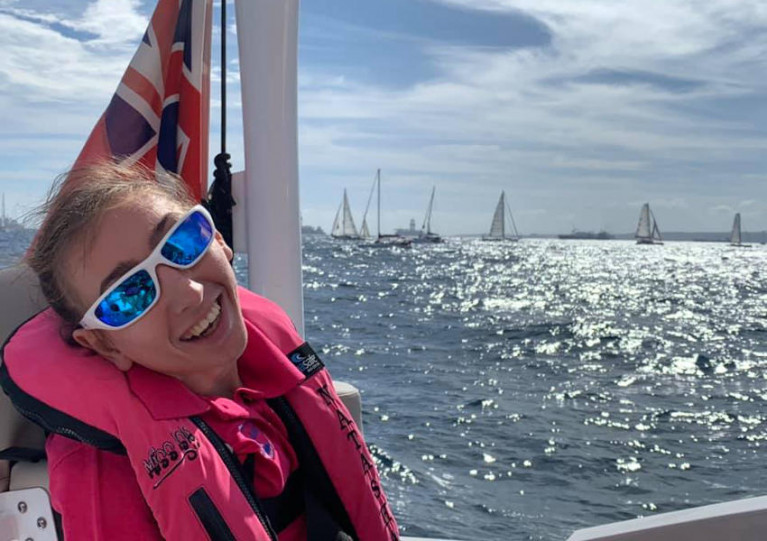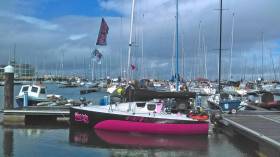Displaying items by tag: Sip and Puff Sailing
Pioneering Sip & Puff Sailor Crosses Atlantic in World First
A young woman with cerebral palsy has become the first person to cross the Atlantic by ‘sip and puff’ sailing.
Natasha Lambert — who three years ago sailed into Dun Laoghaire to complete a crossing of the Irish Sea by the same means — controls the helm and sails of her vessel with a straw.
As Yachting Monthly reports, Natasha’s father Gary designed the system that drives her Nautitech Open 46, named Blown Away — which also happens to be the largest vessel ever adapted for sip and puff sailing.
Twenty-three-year-old Natasha lives with quadriplegic athetoid cerebral palsy but hasn’t let it stop her attempting sailing feats that would be a challenge for even the most experienced able-bodies sailors.
And her latest achievement was skippering Blown Away with her family from Gran Canaria to the Caribbean as part of the 2020 ARC rally.
Yachting Monthly has more on the story HERE.
Dun Laoghaire Welcomes Pioneering ‘Sip & Puff’ Sailor
#Sailability - Natasha Lambert sailed into Dun Laoghaire Marina yesterday (Wednesday 2 August) to complete her challenge of crossing the Irish Sea by ‘sip and puff’ sailing.
Twenty-year-old Lambert, who has athertoid cerebral palsy, sails her 21ft yacht by puffing and sipping on a straw that controls the rudder.
Last month Lambert travelled from her home on the Isle of Wight to south-west Scotland, from where she sailed across to Carrickfergus before continuing along the coast in what she’s dubbed her ‘Sea and Summit Ireland Challenge’ to raise funds for the Miss Isle School of Sip and Puff.
As the title suggests, the next step for the adventurous Natasha is climbing the Wicklow Mountains — made possible with the use of a Hart Walker, a device that enables her to stand upright.
Yachting & Boat World reports that Lambert is the first woman with a disability to skipper a yacht from Scotland to Northern Ireland.
But she’s no stranger to the water, with English Channel crossings and a 500-plus-mile journey from Cowes to Wales among her achievements.






























































